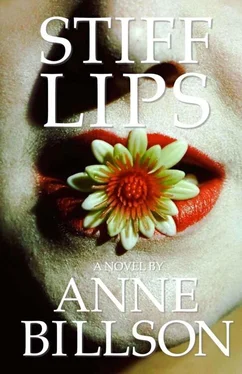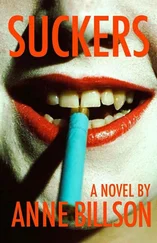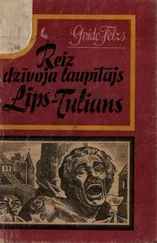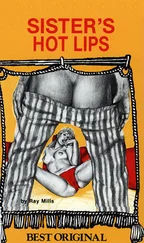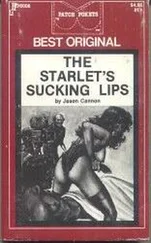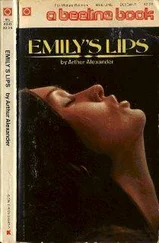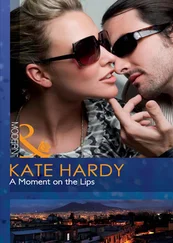'Of course,' said Graham, apparently still in a state of shock, and no doubt as surprised as I was that she'd made no attempt to rip his head off.
'Toodle-pip,' she said, and disappeared downstairs.
'Well,' I said, as we continued upward. 'What's got into her?'
'I'm not sure what you mean,' said Graham, who was mulling over something, shunting it around his brain with a sheep-like expression. 'She's all right really,' he said as I unlocked my front door.
'What do you mean, all right really? ' I demanded. 'I thought you said she was bourgeois.'
Graham went on as though he hadn't heard me. 'And you've got to admit she's attractive.'
I felt like slamming the door in his face, but first I had to give him time to pick up his shopping. Our meeting with Sophie had completely put me off the idea of sex, which was just as well, since Graham obviously hadn't been in the mood in the first place.
But if Graham wasn't good for sex, what was he good for?
I was going to have to find myself another man.
I didn't have a snowball's chance in hell of tracing Polly Wilson, but I'd combed all the relevant entries in Yellow Pages, just in case. I'd found a bicycle shop called, quite simply, Bicycles , and another called Bikes . I'd tried both numbers, but one place had gone out of business and the person who answered the phone at the other informed me, with a certain degree of pride, that his company had only ever employed men.
I didn't know what I'd been expecting. What could Polly Wilson have told me that I didn't already know? That Robert Jamieson had been a bit of a bounder? That he wrote poetry? That he liked a drink?
But I couldn't help it; I felt compelled to find out everything I could. I owed it to myself, particularly since Robert and I were, in a manner of speaking, stepping out together. Was he or was he not good for my image? Did he complement the lifestyle I was trying to lead?
Because, if he did, I honestly couldn't see there was any barrier to our becoming more closely involved. The fact that I couldn't actually see him, I decided, I could live with. It might even be an advantage; all the indications were that he dressed quite tastefully, but because I couldn't actually see him, he could have had Garfield T-shirts and shiny purple shell-suits coming out of his ears and it wouldn't have bothered me. Deep in my heart, though, I knew that Robert wasn't the Garfield or shell-suit type. I felt as though I knew him already, and up to a point, I suppose, I did.
Marsha hadn't been much help. She'd known Robert Jamieson, had actually lived in the same house as him, but whenever I mentioned his name, her normally sunny manner would grow quite overcast. One afternoon in mid-September, when she'd invited me down to her flat to help her finish a big bowl of tiramisu she'd brought back from the restaurant, I tried for the trillionth time to pump her for information.
'Nobody wants to talk about him,' I grumbled.
'Why should they?' asked Marsha, 'The man is dead and buried. Thank God.'
'But you knew him.'
'Only by sight,' she said.
'What was he like?'
Marsha shrugged. 'Can't remember. It was so long ago.'
It was as though she were hiding something, but I couldn't imagine Marsha being devious. I wondered if there had indeed been romantic complications, as I'd once suspected, but concluded not; by now, I empathized with Robert well enough to know he would have found Marsha as dull as ditchwater.
But it was hard to understand her attitude. If someone I'd known even vaguely had cut his throat in an upstairs room, I would have made it my business to find out everything there was to know. I would have grilled everyone who had known the deceased and concocted theories about what had driven him to it. I would have found out what he'd had to eat on that last fateful day, what phone calls he'd made, whether he'd left a note, what he'd been wearing. I would have fantasized about getting there just in time to save him, about nursing him back to health and being rewarded with his undying devotion.
I would have made quite a good detective, if not a good nurse, but Marsha was not the curious type. Sometimes I found myself exasperated by her cud-chewing contentment, by the way it never occurred to her to dig beneath the surface of things. Sometimes I could see why she drove Sophie up the wall.
The best way of finding something is to stop looking for it. The best way of finding something is to stop looking for it and to start looking for something else.
Carolyn's birthday was coming up, and I was on the prowl for a present. I wanted something chic and witty, something that would stop everyone in their tracks and reflect glory on to me, the giver. I wanted something so unusual and astounding that everyone would realize I was a rare and valuable individual who would at all costs have to be invited to their birthday celebrations, too.
There was a catch, though. Whatever I decided on, it would have to be something not too expensive. My publishers had sworn there was a cheque on its way, but in the meantime I was having minor cash-flow problems.
I'd headed straight for Hyperbole — Carolyn's favourite store. It was also the favourite shop of Sophie and Charlotte and, when she was in town, Isabella. But Hyperbole always left me flummoxed. I just didn't get it. Everything, to me, looked tacky and overpriced. And you needed unlimited self-confidence — or perhaps it was simply decades of training in an upper-class assault-course — even to hold your ground on the shop-floor. Spanish tourists dripping with gold jewellery elbowed me out of the way as I tried to examine the sunglasses. Arab women in designer yashmaks barged in front of me on the escalator. As I browsed in the shoe department, lanky American debs chattered to one another over the top of my head as though I didn't exist.
All the time I was there, I felt as though I were being watched, but this was a sensation different from the one I'd been having around Notting Hill. This time I could feel my neck burning beneath the concentrated glare of salesgirls and store detectives who automatically suspected pitiable lowlifes like me of slipping wispy £200 scarves into their £20 tote-bags while no one was looking. I tried to hold my face in an expression of imperturbable all-seeing shopping wisdom, but my features were growing saggier by the minute. I wondered if Robert were with me now. I hoped not. I didn't want him seeing me like this.
On the other hand, I knew that Robert wouldn't have given a fig for those snotty salesgirls and store detectives. Robert, I imagined, would have strolled brazenly out of the store with the ends of a dozen wispy £200 scarves trailing from his pockets. The thought made me chuckle softly to myself. Whatever anyone said about him, the man had been a maverick. Still chuckling, I escaped on to Brompton Road and headed south-west.
So it was that I found myself wandering the backstreets of Chelsea, peering up at buildings and into windows and wondering whether to transfer my territorial allegiance to SW3, even though these streets didn't have the magic of my beloved W11. It was a scant sixty minutes since I'd left the Hill, but already I was experiencing bittersweet pangs of nostalgia. And so it was that, without any warning, I stumbled across exactly what I'd been searching for all along.
It was one of those shops that look out of place, as though they've been converted from the front rooms of private houses. I shaded my eyes to cut down on reflection and tried to peer through the window into the shadowy interior, wondering if there might be some undiscovered little gem of an antique buried beneath the dross. Through the dusty glass I made out a tangled pile of tortoiseshell spectacle frames, an old Leica or two, antique microscopes, and a telescope with a barrel the size of a cannon. In short, there was nothing here that was likely to make Carolyn wet herself with excitement. I would have trotted on down the road and never looked back had I not caught sight of the shop's name, painted in wobbly gilt Gothic on a glass pane in the door.
Читать дальше
